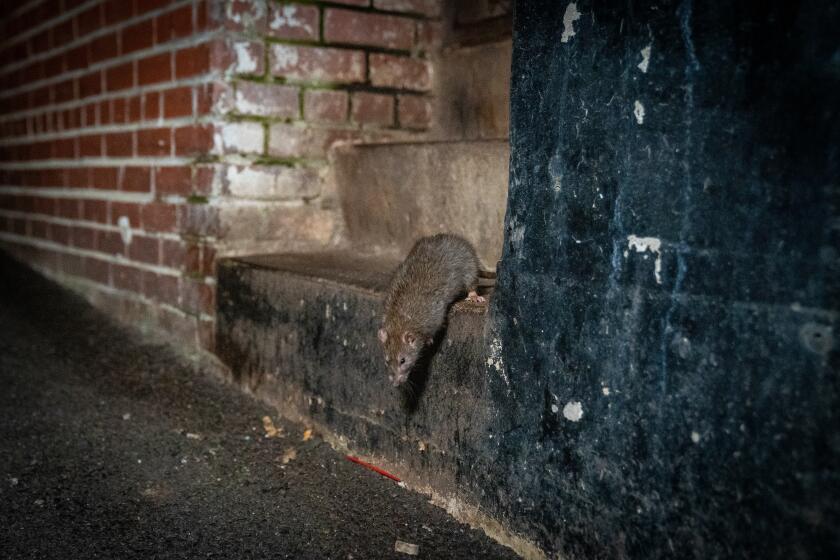STATE OF MIND : When Rover Goes Over
- Share via
Everyone cries when Old Yeller dies, and it’s a good cry, a satisfying movie cry. But when it’s your beloved golden retriever or tabby who has to be put down, the feelings can deepen from regret to depression.
That’s where Diane Kelley, a psychotherapist who specializes in pet bereavement, comes in. “Ten or 15 years ago pet owners often received little, if any, sympathy and understanding,” says Kelley, 46. “Today, however, health-care professionals are recognizing that such a loss can have a drastic impact on a pet owner’s life. In some cases, it can even be as devastating as losing any other member of the family.”
During the past 10 years, Kelley, who has offices in Manhattan Beach and Los Angeles, has helped hundreds of clients cope with their pets’ death. Most feel better in three to six sessions, she says, if the loss of the pet is not complicated by other factors.
A USC graduate with two master’s degrees and a Ph.D in counseling psychology, Kelley has two dogs, two cats and a veterinarian husband. She decided about 10 years ago to expand her practice to include pet grief therapy, which today accounts for about 50% of her business. “There is such an incredible bond between animal and human,” she says. “Studies, after all, continually show how owning and caring for a pet can reduce such maladies as high blood pressure or severe stress.”
Most patients who seek bereavement counseling are single and without children, but, Kelley says, “I have counseled a good number of people with families and/or a spouse. What’s important to keep in mind is that a loss is a loss, whether it be human or animal. Getting hung up on ‘Why am I feeling this way over a pet?’ diverts a person from facing and solving the problem of grief.”
More to Read
Sign up for Essential California
The most important California stories and recommendations in your inbox every morning.
You may occasionally receive promotional content from the Los Angeles Times.










